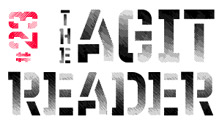
The Collector’s Editions
Rhino
“Reissue, repackage, repackage / Reevaluate the songs / Double pack with a photograph / Extra track and a tacky badge,” once sang Morrissey. He could have very well been talking about fellow Mancs New Order, though he wouldn’t have known it at the time. For few bands have had their work rearranged and rereleased in so many varied forms as this innovative lot. Beginning with 1987’s Substance, there has been four “greatest hits” collections as well as the curated four-disc boxset, Retro. Each has overlapped in numerous way, while at the same time offering a few distinguishing mixes or alternate versions to lure fans.
Not that New Order is necessarily unworthy. Since their surprise rise from the dour ashes of Joy Division, the band has created a wealth of colorful, yet moving, post-punk pop. Digesting ideas liberally from many sources, New Order bridged the gaps between the rock stage and the dancefloor, the electronic and the electric, the emotional and the stoic. Joy Division’s too-soon departed singer, Ian Curtis, might be celebrated as a lost poet, but Bernard Sumner eventually found his voice too, creating song lyrics at once lovelorn and emotionally detached that were of an equal weight.
For all the compiling that’s been done of New Order’s output, there’s yet to be a definitive collection. Substance was done while the band still had plenty of life left in it, while each of the subsequent hits compendiums were flawed by track selection in one way or another. As such there’s been a real need for Rhino’s recent reissues of the band’s first five albums—Movement, Power, Corruption & Lies, Lowlife, Brotherhood and Technique—remastered and each containing a bonus disk of B-sides and the like, or as the label calls them “collector’s editions.” And given the label’s exceptional treatment of the catalogs of other bands like the Cure and Depeche Mode, one would expect that this would be the collection for which New Order fans have been waiting.
But it’s not. Without input from the band, the remastering has been done poorly, and the bonus disks botched, both in terms of selection and audio quality. If a version (and a common one at that) of “State of the Nation” is included with Lowlife, why patch it on the end of Brotherhood, a mistake made when the album was issued on CD the first time aroud. Adding insult to injury are tracklisting errors like the remix of “True Faith” included with Brotherhood marked as the True Dub version, when it’s in fact Tall Paul’s Eschreamer Dubbier mix.
But it gets worse. One can hear actual audio glitches (check out “Touched By the Hand of God”) that are most likely the result of sourcing from a vinyl copy and then trying to correct pops and hisses afterwards instead of working from an original tape. And the remastering of the original albums has been done without subtlety, just some indiscriminate increases in decibel levels. Sure, they sound better than the CD versions of the late-80s and early-90s, but that’s not saying much. All-in-all it’s disappointing that New Order’s catalog would be given such shoddy treatment. It deserves better than that, but given the propensity for repackaging it, it may some day get it.
Stephen Slaybaugh
PAST PERFECTS
The Clash, Live at Shea Stadium
U2, Under a Blood Red Sky
Creedence Clearwater Revival, The 40th Anniversary Editions
Suicidal Tendencies, Suicidal Tendencies
Portastatic, Some Small History
Tom Verlaine, Dreamtime and Words from the Front
Wee, You Can Fly on My Aeroplane
Licorice Roots, Melodeon
Another State of Mind
Delicious Vinyl All-Stars, Rmxxology
Felt, Crumbling the Antiseptic Beauty
Siltbreeze's Tard & Further'd
U2, Boy, October and War
Teenage Jesus and the Jerks, Beirut Slump/
Shut Up and Bleed
